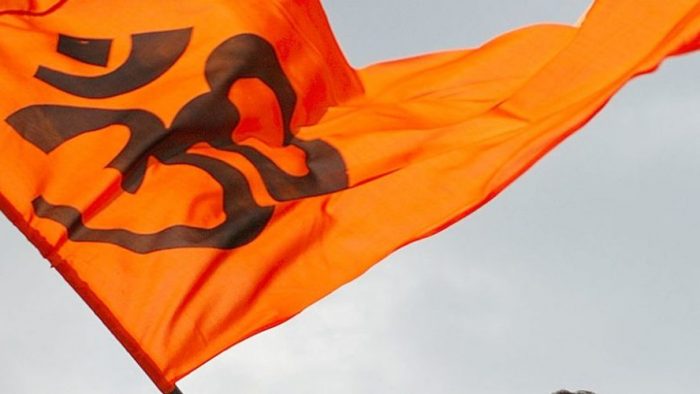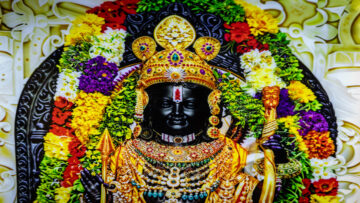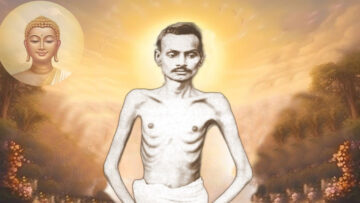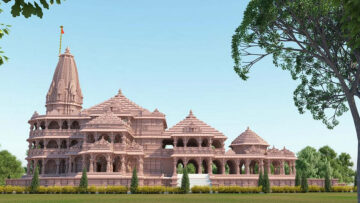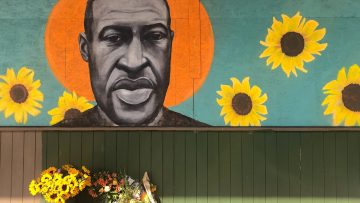Read Part I.
Q. I would like to start where we left off the last time. I think we need to look at our own glorification of the past, the feeling of nostalgia is a kind of mortgage to the past. Isn’t that a big block to moving forward?
Raghu: Yes it is. However, let us look at this with some compassion. My hypothesis is that there is a feeling that we are losing our core identity. On the one hand there is a sense of guilt of not having lived up to my dharma and on the other hand a sense of inferiority when I look around and see what we are. I escape the hard work of rediscovering my roots and rejuvenating myself by going back to a glorious past. There is dishonesty there as well, because not everything we did was great. I do not confront myself and look at my own betrayal of dharma in an honest manner. To start with can we own up and say that because of x, y and z conditions I did what I did. Now that I have a choice, I will do the hard work of growing in a way that is true to me- with no envy, and no victim-hood; find a new way that has the possibilities to review, rediscover, learn, experiment,.
Q. The hurts from the past also do not allow me to assimilate?
Raghu: Yes. So long as I do not confront the trauma I can only feel victimhood or rage. No westernized and colonized Hindu would accept the trauma that has taken place. Instead there is shame around owning up being Hindu. S/he will disown it and criticize it with more alacrity and contempt than the Westerner whose affirmation s/he seeks.
Q. Recently, I visited my native village. While enquiring about my great grandfather, I was talking to many elders who were in the 80s or 90s; I specifically wanted to know about his role in the Independence movement. At one level I was proud of him and the stories people told me. But at another level I felt sad, when they spoke with sadness on the comparison of how things were and the present situation.
Raghu: I understand. If I feel confusion and experience deprivation then I have only 2 options in front of me.
- I must honestly examine what happened and why we have become so poor. This has to be done without the blame towards anyone. I ask how was I part of this problem?
- Once I understand what has happened, I do not start judging myself as ‘good vs. bad’ or ‘right vs wrong’ or look at the past glory and compensate for the hurt or sadness I am in. I need to truly grieve and transform that energy into something powerful that will propel me further. It will assist in taking forward my heritage in a meaningful manner.
Q. I was reading a memoir of a Tamizh writer named Jayakanthan; he mentioned that one of the famous activists of the Dravidian movement, K.Veeramani also known as Sarangapani was born into a Brahmin family. This was a huge revelation for me!
Raghu: This is exactly what happens when you react angrily to the impoverished nature of your identity. The distorted way the heritage is held today will influence you and prevent you from looking at the context with honesty and compassion. Ashish Nandy calls this process “internalizing of the oppressor”, W E DuBois calls it the “double consciousness” and Frantz Fanon calls this the Black Skin and White Mask phenomenon. This is an inversion, or introjection, which needs to be owned up by the so-called rationalists and left liberals. But instead, the person will turn against his/her own community, heritage and the self. Instead of saying “Yes, there were problems but now is it possible for me to change?”
Q. The problem is that no one knows how to deal with the hurt or with people like Veeramani.
Raghu: Good question. There is an interesting incident narrated to Sashi and me by Ganapati Sthapati. He said that the members of the Dravidian movement would go into the agraharams to propagate their agenda. But every house will close their doors to them, and interestingly only the Vishwakarma people would fight them. Sthapati asked us “what happened to you Brahmins? Why did you not stand up and fight?” So, we have to agree that we allowed ourselves to be humiliated and therefore, we have to accept our cowardice. Sarangapani joined the oppressors! Brahmin skin and Non-Brahmin mask! If you do not own up to the cowardice, you will either get into self-hate or self-aggrandizement. I have always wondered whether the Brahmin – Non Brahmin issue is a way for the Hindu to manage his shame. S/he finds a convenient scapegoat within the fold. S/he does not say the whole Hindu community behaved in certain ways, with each of its parts held it in one way. S/he fragments her/himself, goes over to the other side and joins the condemnation. As though by hurting and harming one part of my heritage I can lobotomize my own brain and wipe away the color of my skin.
Q. I understand that there is a part of me that accepts the cowardice, a part of me that accepts the beauty of our tradition and the third part is confused as to where am I?
Raghu: First, you need to answer if you are looking at all of this through a lens of shame or wholesomeness?
Q. Right now I am looking at it from a space of hurt.
Raghu: Ok. So, can you observe this hurt and the subsequent process of healing which includes grieving by saying that “My community and I have behaved in a certain way that is leaving me hurt.” When you start doing the following:
- I can seek forgiveness from myself especially since my community has let itself down.
- I express the sadness of this betrayal and feel it rather than running away from it.
Q. But my community has also done some wonderful things like keeping the heritage alive through the apAd dharma process.
Raghu: Own up to this in pride. Look at all of it from a space of duHkha nivarana for not only myself but the community also using ahimsA and satya as anchors. I believe we would be able to heal the wounds and transform the fragmented energies that are currently in the system. In any case that’s what I have tried to do and it has taken me on a journey of deep study of Yoga and developing ways of working with the downtrodden on the one hand and Business leaders on the other hand based on Yogic principles.
Q. Is running away from this reality part of the reactive dharma?
Raghu: Yes.
Q. So, essentially you are talking about a dialogue between the three positions?
Raghu: Correct. vichAra and not vitarka is what is needed because vitarka would only cause more hurt and a blame game. For instance you can hold on to a ‘pure’ understanding of dharma and Veda to judge what is going on in society today. Or you can become the champion of the Dalit and attack the Upper castes. Most Hindus become spectators, close themselves in and become indifferent to both these realities. None of these will lead to a resolution of an internal conflict.
Q. This is the challenge of every Indian especially the youth. How does a young Indian see these points of view without ever being exposed to any part of the tradition or heritage?
Raghu: They need to go and find out. If you do not understand your heritage go and study but please do not just react looking at the present context or listening to some television debate.
Q. I also feel that the youth is confused about his/her identity considering the number of worlds they are exposed to such as the social media, technology, professional life, language based identities and many others. So, where is the starting point in that case?
Raghu: There are three identity locations every Indian irrespective of age is carrying. They are:
- Identity based on belonging, religion, language
- Identity based on the profession, which includes education and work place
- Identity based on what it means to be human.
All the three are very important parts of one’s identity. Grounding oneself in humanness is becoming scarce nowadays. The reality of the other belonging can be stacked on this foundation merely as facts and not as identifiers. Then, I can draw energy from this foundation, feel the duHkha of humankind as well as the ecstatic potential humanity holds. I can see the hurts that I feel in the other layers and heal them.
Q. Can you elaborate how we can draw out the essence of each identity to create something viable and wholesome?
Raghu: Let me share with you how I have gone about understanding what being a Brahmin means. If you go by the Upanishad it clearly says that you are a Brahmin if you walk on the path to the understanding of ‘what is brahman’. Right now I am just born into a kula where someone in the lineage had walked this path. But by karma I am a vaishya and by birth a brahmabandhu. Unfortunately, none of these are being owned up to nor is the process of redefining happening in the larger context. So I have to face the projections others make on me based on their idea of a Brahmin. Some of these projections can be very traumatizing. For example when I lived in a hostel, any Hindu taking his religious practices seriously was ridiculed, though Deepavali and Holi were celebrated as secular events. I am very interested in science and technology. The only value that is respected in the educational institution is the “objective-rational” mode of thinking, and a focus on validation. I found it very difficult to reconcile the way Hindu religion was taught to me with my scientific orientation. If I had not met Shri Desikachar and Yogacharya Krishnamacharya and spent years in study with them, I would have seen Hinduism as atavistic. It took a while to see through the ideology of modernity and how it is contributing to the destruction of ecology and humankind. How does one reconcile the mystical anchors of Hindu thought with the rigor of scientific thinking? Also, often modernity is confused with the ideology of the left. I flirted with this too! The uncritical embrace of modernity feeds an envy of the west. This combined with the ridicule one faces when owning up to one’s community belonging induces self-hate. It is only when I read about the genocides of the Native Americans and the horrors of the slave trade that I started to see the larger human issues. One can see the failure of all religions and modes of governance in actually dealing with human suffering.
Q. So, are you proposing a new framework to look at these identities we carry from the 3 anchors?
Raghu: I don’t think I am proposing some thing new. I am saying that we first anchor ourselves on the common ground of being human. Belonging by race, religion, language and are realities and inevitably breed differences. I will not be able to see the gifts of each of these sub-identities and what they bring to humanity, as well as the horrors they have unleashed with their limitations, unless I am grounded in the ‘human’ foundation. The genocide of the American Indians, the persecution of the unbelievers and the oppression of untouchability are human issues. They are a subversion of the noble intent of the wise and the good people of each race and ethnicity and were created by people to serve their need for power. They must be called out. By remaining a captive of limited identifications, this can never happen. One will own up the good, and project the bad onto the “other”. As a Hindu, it has been very liberating for me to anchor in being human and review my Hindu tradition. I have been able to embrace my tradition with pride and dignity. Through the study of the yoga shastras I have seen how it has been distorted and diluted over the years. I have worked with the poor and dispossessed using Indic ideas of governance and I have seen it yield great results.
Q. I understand what you are saying. How do I start?
Raghu: Let me share with you a few experiences I have had. I have worked quite a bit with Dalit groups. There is always an initial period of testing me and assessing my real motives. Since my work is based on self-reflection and sharing, I speak about myself, my hurts, my struggles of growing up and so on. I have owned up my sadness that people of my community have oppressed Dalits. I have sought forgiveness on behalf of my community. Whenever I have been honest and sincere, my remorse has shown up. I remember participants sharing their own suffering, humiliation and oppression. My own trauma pales before what many of them share. When I listen and resonate, accept their suffering and their anger, our differences melt away. We learn from each other as human beings to find ways of ending divisive ways of existence. Naveen, Venky and a few of us started a dialogue with our friends who are Muslims. The moment we were honest about ourselves, our fears, how we are creating division and contributing to the ‘Othering’ process and sought forgiveness from each other for doing this, we could meet as human beings.
Q. What you are saying needs courage. Isn’t it very difficult?
Raghu: I don’t think so. It only asks for us to be committed to ending the ways in which we reinforce division and oppression. It asks for us to trust that the other person, who has come forward to have a dialogue with us, also wishes to end duHkha. There are a few who have vested interests in reinforcing divisions and the suspicion and fear it can create. There are a few whose trauma is very deep and therefore very difficult to dissolve. But by and large, people wish for peace. The SanAtana Dharma tradition that I belong to does not give me any basis on which to create the “other”. It says that every manifestation is Brahman. If I really honor this, there is nothing except my fears and limiting frames to stop me.
Q. This is possible when people of diverse belonging come together in order to dialogue. What happens with those who are entrenched?
Raghu: This could be the more difficult process. Hindus have a long history of having been dominated. We must dialogue honestly among ourselves and deal with our trauma and reclaim our swAbhimAn, our true swatantrata and our swadharma. Our Muslim and Christian friends must own up to their acts of commission and omission, to see where they are reinforcing divisiveness. Both actions are important, the actions within our communities to anchor on what is human, noble and peaceful as well as reaching out across the divide.
Disclaimer: The opinions expressed in this article belong to the author. Indic Today is neither responsible nor liable for the accuracy, completeness, suitability, or validity of any information in the article.

